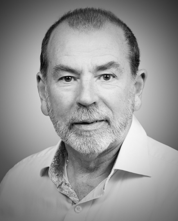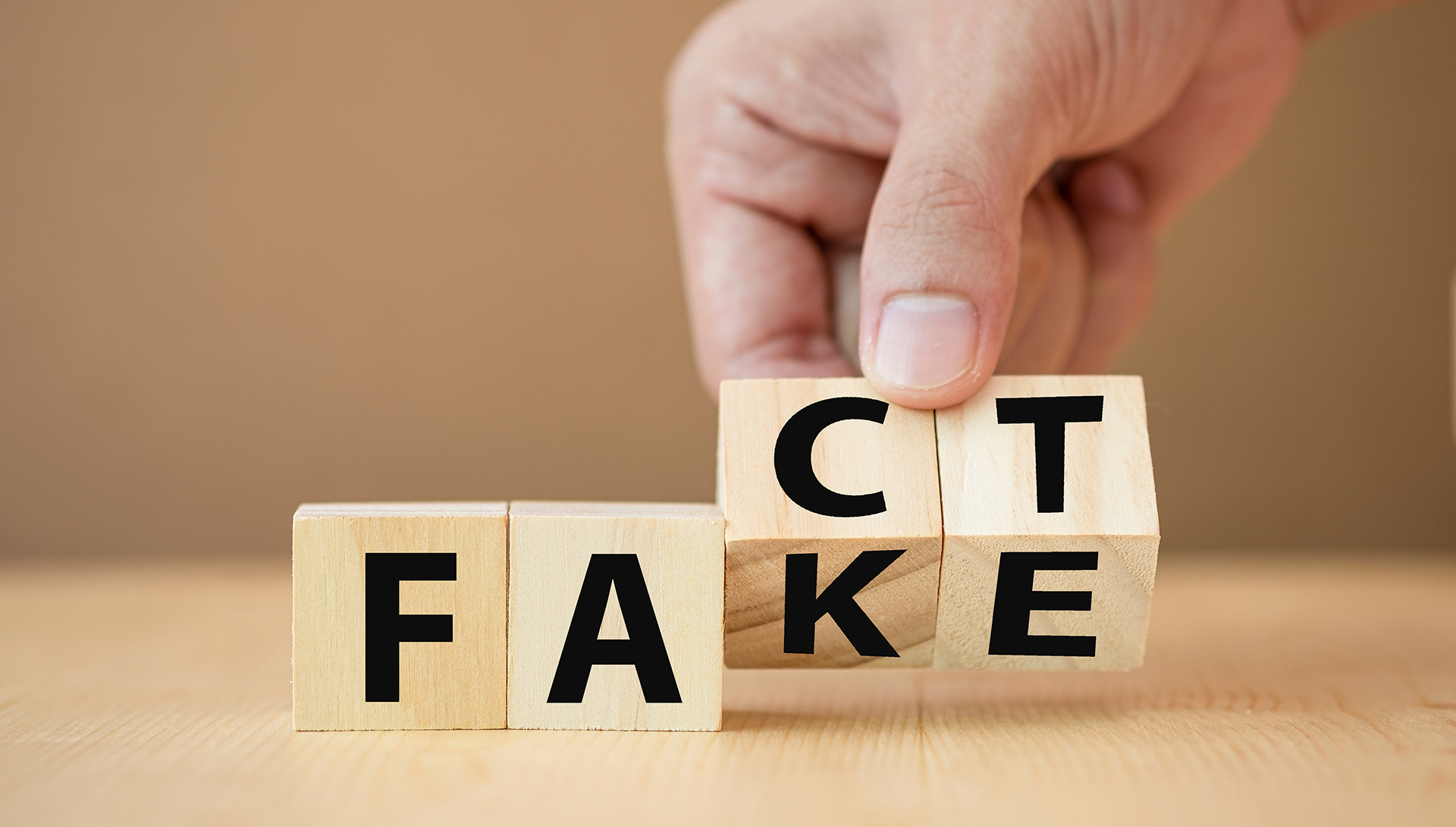by Neville Jones | Nov 08, 2021
The truth is not enough
If we’ve learned anything from the COVID-19 pandemic, it is that the truth alone is insufficient to elicit or change behaviour. Carpet-bombing the media with apparently clear messages like “COVID-19 vaccines are safe and effective” (CDC) exacerbated the infodemic1 that stunned millions into inaction rather than action.
Responding to pandemics is as much about communications studies, social psychology, and policy studies, as it is about epidemiology and virology.
Effective government crisis communication relies on ... public trust to harness public cooperation and sustain behaviours (Hyland-Wood).
Clearly, truth is impotent if it’s not believed. This is a conundrum for marketers because truth is essential in their marketing. Indeed, it is unlawful for a business to make statements that are incorrect or likely to create a false impression (ACCC). So why does the mention of “truth in advertising” elicit guffaws from the man in the street and provide so much material for comedians?
One reason might be that some eminent brands, such as Volkswagen2, Reebok3 and Dannon4 are occasionally embroiled in high profile charges of misleading, false or deceptive marketing. Another reason could be that almost all marketing communications are bracketed by content that is not held to the same standard of truth.
“Fake news” is a term that has quadrupled in usage in the past five years (after peaking at 10X in March 2020)5 as we become accustomed to news reports that fail fact-checks. Every week, the ABC’s Media Watch program fills its time slot with criticisms of Australian media, finding integrity failures on all channels, including the ABC itself. But aside from this program and other inter-channel sniping, there is little to regulate general news reporting in Australia aside from having to respond to complaints and defamation suits brought by individuals or small businesses. (Relief from defamation is generally not available to large businesses.)
Unsurprisingly, Australians’ trust in news media is on the slide.
In Australia over the past five years, trust in newspapers and magazines has had a net decline of 14%. That is, 28% have less trust now versus 14% who trust them more. Trust in TV and radio had a net decline in trust of 13%, while trust in online news websites and platforms had a net decline in trust of 9%. (Ipsos)
So earnest, compliant marketers must pitch their “truths” into a medium full of content unencumbered by the same obligation to be correct. They risk guilt by association. Just as a rising tide raises all boats, the falling tide of trust in a medium can taint everybody in that medium.
On the other hand, a steady rock becomes a beacon as those same boats fall away. It is possible for truth to rise, even in a medium losing consumer confidence?
Consumers will embrace a marketer’s truth if (and only if) they believe it.
The reality is that most purchase decisions aren’t made because of who we are (e.g., an affluent, middle-aged urbanite), but because of what we believe in. (Raddon)
The implication for marketers is profound. The truth is not enough. Truth in advertising is mandated by law but insufficient to effect a behavioural outcome in favour of the marketer. The truth must also be believed. “It’s our belief systems that ultimately drive our choices.” (Raddon)
As we have seen, the traditional marketers’ tools of persistent, consistently clear truths are not sufficient to change behaviours during an infodemic and rising scepticism. This dismays empiricists like many scientists, lawyers, law-makers and law enforcement. For them, it should be sufficient that an objective fact can be observed, measured, repeated, understood and explained. But in almost all media, the difference between fact and opinion has become blurred or even imperceptible.
We used to get helpful signals like “Editorial”, “Op Ed”, “Opinion” etc to help us assess a story. Some of those signals still appear, but much editorial and opinion can be found in other columns and especially in entertainment programs that masquerade as current affairs or breakfast news programs. Research by Pew Research confirms that this has had a significant effect on the ability of people to distinguish between fact and opinion.
The main portion of the study, which measured the public’s ability to distinguish between five factual statements and five opinion statements, found that a majority of Americans correctly identified at least three of the five statements in each set. But this result is only a little better than random guesses. Far fewer Americans got all five correct, and roughly a quarter got most or all wrong. (Pew)
This doesn’t seem to trouble everybody. Indeed, if you’re not an empiricist, then it doesn’t really matter if a statement is factual or an opinion. What matters more is who made the statement and whether they (rather than the statement) are believable.
In the Australian sample of the 2021 Edelman Trust Barometer, Scientists, “people in my community” and “my employer CEO” all slipped slightly but remained in the “Trust” range. Religious leaders and CEOs lifted materially but remained in the “Distrust” range while Journalists and Government leaders jumped significantly out of “Distrust” into “Neutral”. (Edelman)
Australians are recognising they need to take more personal responsibility for their own information diet; being politically aware (+33 points), increasing media and information literacy (+30 points) and increasing science literacy (+23 points) jumping in importance. However, less than 1 in 4 Australians practice good hygiene – meaning they don’t engage with multiple sources, avoid information echo chambers, verify information they’re consuming, and vet content before sharing. (Edelman)
Evidently, most of us acknowledge the need to pursue the truth, then do little in that pursuit. Perhaps it is our way of dealing with the infodemic. It takes a great deal of discipline to winnow the truth from ubiquitous unregulated sources of fact, fiction and opinions. It is unquestionably easier to sign on to a small number of (or one) curated sources that feel right. Like playing your friend’s playlist on Spotify because you don’t have time to curate your own.
So, what’s a truth, anyway? Whilst the question has entertained philosophers for centuries, the most widely accepted view is that a truth corresponds to a fact. As Marian David asserts in ‘The correspondence theory of truth’, truth and fact are not the same. Truth is a quality of a proposition or a belief. If a belief corresponds to facts then it is true.
It is not possible to have a belief that one believes is false. Unequivocally, all of one’s beliefs are truths to that person, regardless of the source of that belief. In this world of curated opinions and shared beliefs, it is the acquired belief that creates a truth for the acquirer, not the other way around.
“Your beliefs become your thoughts,
Your thoughts become your words,
Your words become your actions,
Your actions become your habits,
Your habits become your values,
Your values become your destiny.”6
The challenge for a marketer is to cultivate an ecosystem of shared beliefs that elicit truths in the mind of the consumer that correspond to the actual brand truths. Thus, it is these shared beliefs that drive behaviour.
Brand truth → Shared beliefs → Consumer truth → Consumer actions
A corollary of this is that entrenched beliefs drive consistent behaviour, a property we know as loyalty.
Works cited
1 WHO explains that infodemics are an excessive amount of information about a problem, which makes it difficult to identify a solution.
2 The discovery that Volkswagen (VW) had installed devices to lower emissions during vehicle testing, and the ensuing fallout caused the company’s share price to drop by 40% in two weeks.
— Jung, Jae & Sharon, Elizabeth. (2019). The Volkswagen emissions scandal and its aftermath. Global Business and Organizational Excellence. 38. 6-15. 10.1002/joe.21930.
3 When Toning Shoes Strengthen Nothing More than Likelihood of Lawsuit: Why the Federal Trade Commission Needs Guidelines Regarding Proper Substantiation of Fitness Advertisement.
— Heather M. Mandelkehr, 20 Jeffrey S. Moorad Sports L.J. 297 (2013)
4Dannon Yogurt Settles Deceptive Advertising Claims
— Truman Lewis. (2010) Consumer Affairs
5 https://trends.google.com/trends/explore?date=all&geo=AU&q=fake%20news,alternative%20facts
6 Mahatma Gandhi
Bibliography
ACCC. "False or misleading statements." n.d. Australian Competition & Consumer Commission. 26 August 2021. <https://www.accc.gov.au/business/advertising-promoting-your-business/false-or-misleading-statements>.
CDC. "Key Messages about COVID-19 Vaccines." n.d. Center for Diseases Control and Prevention. Document. 26 August 2021. <https://www.cdc.gov/coronavirus/2019-ncov/downloads/vaccines/toolkits/Key-Messages-CBOs-and-Essential-Workers.pdf>.
David, Marian. The Correspondence Theory of Truth. 28 May 2015. 26 August 2021. <https://plato.stanford.edu/entries/truth-correspondence/>.
Edelman. " Top Ten Takeaways." February 2021. Trust Barometer 2021 Australia. 26 August 2021. <https://www.edelman.com.au/sites/g/files/aatuss381/files/2021-02/AU%20Trust%20Barometer%20Top%2010%20%28Web%29%20-%20FINAL_3.pdf>.
—. "Edelman Trust Barometer 2021 Australia." 2021. Edelman. 26 August 2021. <https://www.edelman.com.au/sites/g/files/aatuss381/files/2021-02/2021%20Edelman%20Trust%20Barometer%20-%20Australia%20Country%20Report%20FINAL_0.pdf>.
Hyland-Wood, B., Gardner, J., Leask, J. et al. "Toward effective government communication strategies in the era of COVID-19." 27 January 2021. Nature. Document. 26 August 2021. <https://www.nature.com/articles/s41599-020-00701-w>.
Ipsos. "Australians trust the media less: Ipsos “Trust in the Media” study." February 2019. Ipsos. 26 August 2021. <https://www.ipsos.com/sites/default/files/ct/news/documents/2019-06/global_advisor_trust_in_media_aus_18jun2019.pdf>.
Pew. "Distinguishing Between Factual and Opinion Statements in the News." 2018.
Raddon, Aaron. "Believe It Or Not, Belief Systems Drive Our Buying Behavior." 26 February 2020. Forbes. Article. 26 August 2021. <https://www.forbes.com/sites/forbestechcouncil/2020/02/26/believe-it-or-not-belief-systems-drive-our-buying-behavior>.
VEC. "Inquiry into the impact of social media on elections and electoral administration." September 2020. Parliament of Victoria. 26 August 2021. <https://www.parliament.vic.gov.au/images/stories/committees/emc/Social_Media_Subs_2020/77._Victorian_Electoral_Commission_Submission_Redacted.pdf>.
----------------------------------------------

Neville Jones is Chairman of DPR&Co, the owner and CEO of Experiential Travel and a former partner at Accenture.






